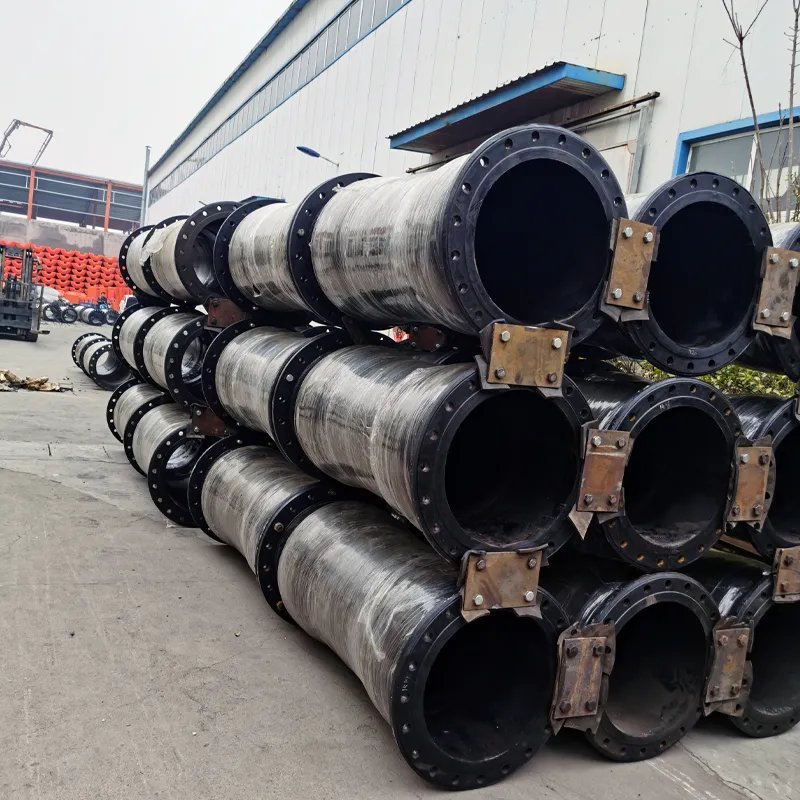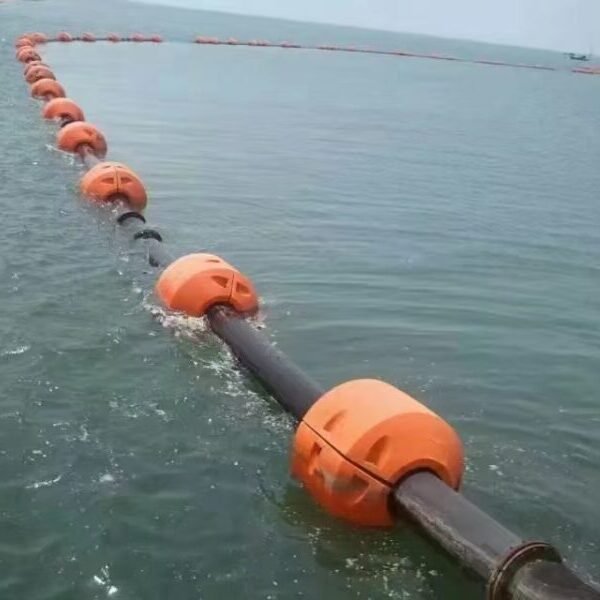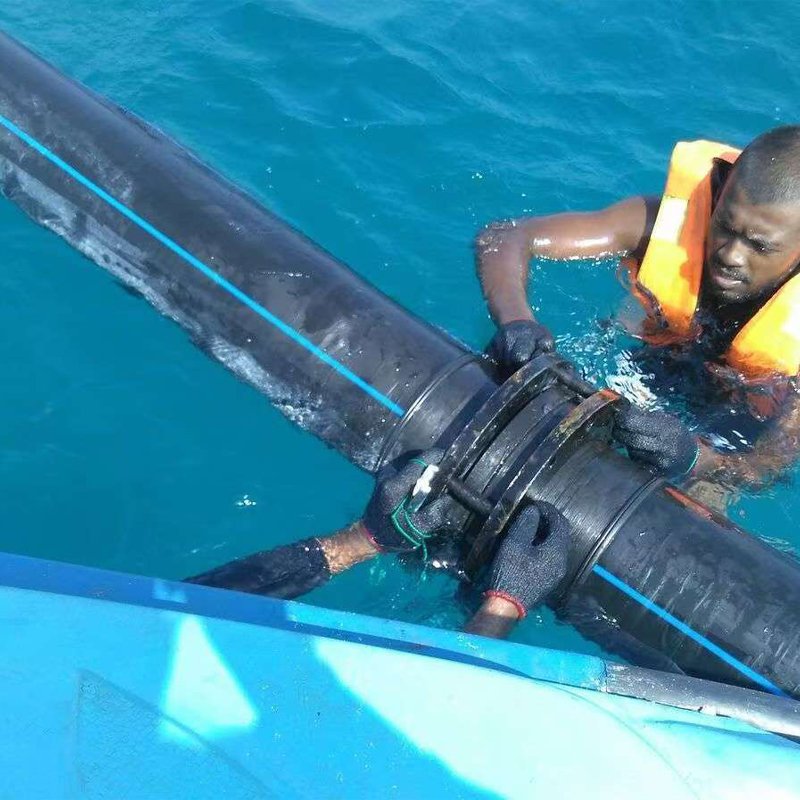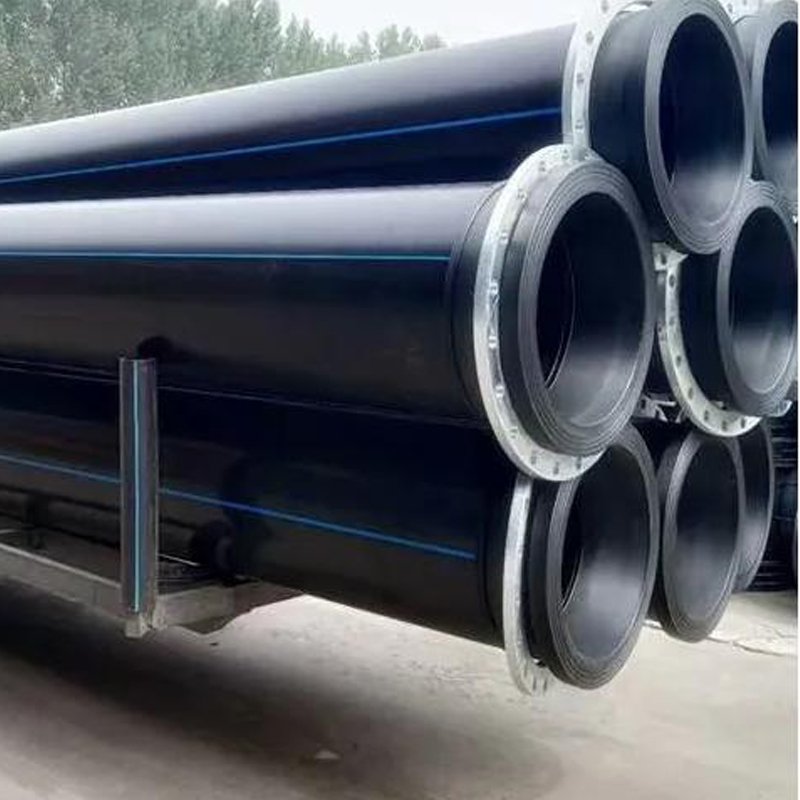The role of HDPE pipes
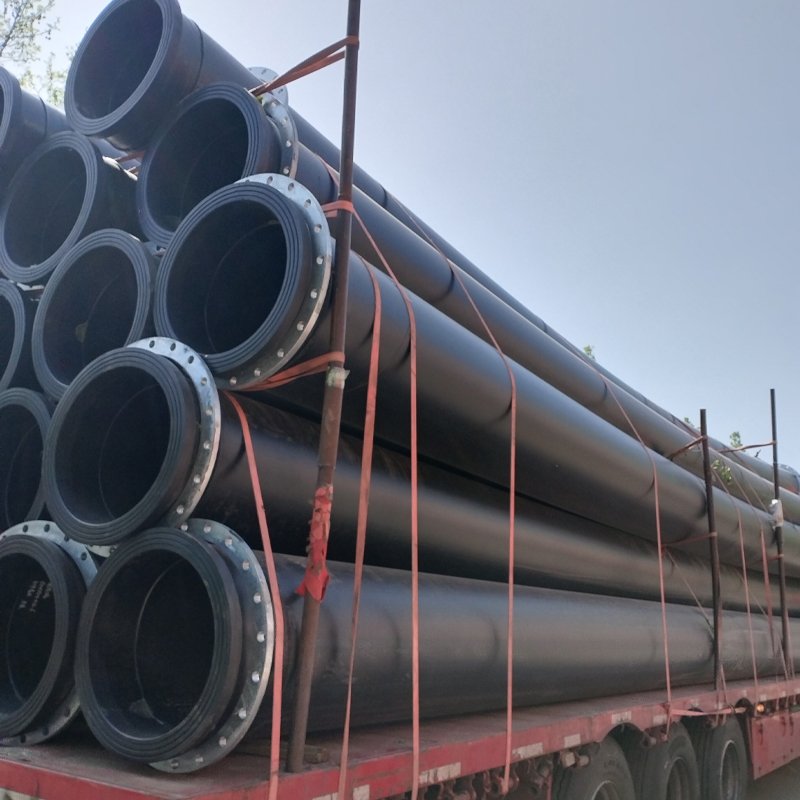
HDPE pipe (High-Density Polyethylene Pipe) is a very common plastic pipe material that plays an important role in many fields due to its unique properties. Overall, the core function of HDPE pipe is to safely, reliably, and economically transport various fluids and protect cables. Below, we will elaborate on its functions from two aspects: its core characteristics and main application areas.
I. Core Characteristics of HDPE Pipes (Why They Have These Functions)
The widespread application of HDPE pipes stems from their excellent material properties:
1. Superior Corrosion Resistance: Inert to most chemical substances (acids, alkalis, salts) and resistant to electrochemical corrosion. This makes it highly suitable for conveying corrosive fluids or laying in corrosive soil, with a service life far exceeding that of metal pipes.
2. Excellent Impact and Pressure Strength: Good flexibility and high impact strength,不易破裂 even after being flattened or undergoing a certain degree of deformation. It can withstand certain internal and external pressures.
3. Extremely Long Service Life: Under suitable operating conditions, its designed service life can reach over 50 years, making it almost a \”one-time solution\”.
4. Good Flexibility and Coilability: Can be produced as coil pipes, requiring fewer fittings during installation, reducing leakage points, speeding up construction, and particularly suitable for complex terrains or non-trench construction scenarios (such as jacking and pulling pipes).
5. Smooth Inner Wall and Strong Conveying Capacity: Low friction coefficient, smooth water flow, greater flow than concrete and cast iron pipes of the same diameter, and less prone to scaling.
6. Light Weight and Easy Construction: Much lighter than concrete and metal pipes, making transportation and installation very convenient, significantly reducing construction costs and labor intensity.
7. Safety and Hygiene: Odorless and non-toxic, meeting drinking water hygiene standards, and will not cause secondary pollution to the conveyed medium.
8. Reliable Connection Methods: Mainly uses hot-melt butt welding or electrofusion connection, allowing the joint strength to be the same as the pipe body itself, achieving \”zero leakage\” at joints with extremely high reliability.
II. Main Application Fields (Specific Areas Where They Play a Role)
Based on the above characteristics, HDPE pipes play an irreplaceable role in the following fields:
1. Municipal Water Supply and Drainage
– Water Supply Pipes: As main trunk pipes and distribution pipes for urban and town water supply, ensuring the safe delivery of drinking water.
– Drainage/Wastewater Pipes: Used in urban rainwater and sewage discharge systems; its corrosion resistance makes it highly suitable for conveying domestic and industrial wastewater containing various chemical components.
– Reclaimed Water Pipes: Used for conveying reclaimed water.
2. Gas Transmission Field
– Specialized HDPE gas pipes are one of the preferred pipe materials for urban medium and low-pressure gas transmission and distribution systems due to their high safety, corrosion resistance, and good sealing.
3. Industrial Field
– Chemical Pipes: Used in chemical plants and industrial parks to convey various corrosive chemicals, waste acids, waste alkalis, etc.
– Mine Tailings Transport: Used to convey abrasive media such as pulp and tailings.
– Ship Pipes: Used in ship’s ballast water, sewage, and water supply systems.
4. Agricultural Irrigation Field
– As main trunk pipes and branch pipes in water-saving irrigation systems (such as drip irrigation and sprinkler irrigation) due to their good weather resistance, long service life, and cost-effectiveness.
5. Power and Telecommunications Field
– Cable Protection Pipes: Used as protective sleeves for power cables and communication optical cables, protecting the cables from mechanical damage, soil corrosion, and groundwater intrusion.
– Non-Trench Jacking Pipes: Ideal for穿越 roads, railways, and buildings; HDPE jacking pipes have high construction efficiency and minimal impact on ground traffic and the environment.
6. Environmental Protection Field
– Leachate Collection in Landfills: Used to collect and convey toxic and harmful leachate generated in landfills.
– Process Pipes in Wastewater Treatment Plants: Widely used in various process stages of wastewater treatment plants.
The role of HDPE pipes can be summarized as follows:
With comprehensive advantages such as corrosion resistance, long service life, good flexibility, reliable connection, and hygiene safety, they have become a modern, multi-functional pipeline for conveying and protecting materials. They are widely applied in various critical fields, ranging from daily life water and gas supply to industrial production, agricultural development, and environmental protection, providing important support for the construction and safe operation of modern infrastructure.

